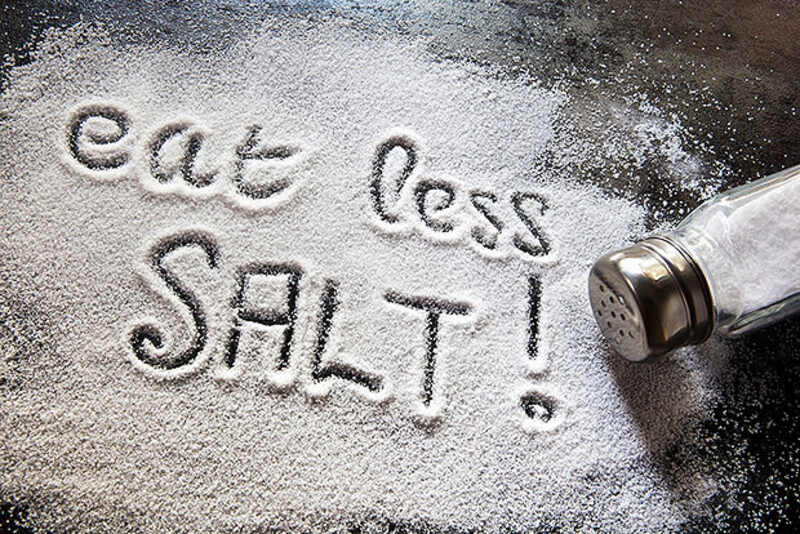The Silent Threat to Cognitive Well-being
Dec 30, 2023 By Madison Evans
Often, people overlook the potential health impact of salt, a universal seasoning found in every household. Its association with high blood pressure and cardiovascular diseases enjoys comprehensive documentation. However, we have yet to thoroughly explore how excessive salt intake affects brain health. In this article, we delve into an intricate relationship between sodium and cognitive function and unravel hidden risks your brain may encounter through excess salt consumption.
The Delicate Balance Needed Between Salt and Brain Health
Indeed, the human brain is a marvel of complexity. It must have a delicate balance of various elements for optimal function. Sodium, an essential electrolyte, crucially maintains this delicate equilibrium. Yet, if we exceed our recommended daily intake, we could upset this balance and potentially induce adverse effects on cognitive well-being.
Impact of Salt on Cognitive Function
Sodium ions, situated within the complex framework of neurons and synapses, play a crucial role in electrical signal transmission. They are pivotal. An ideal concentration, one that remains neither too high nor low, guarantees efficient communication between brain cells.
However, when sodium levels escalate, a disruption to this delicate dance occurs. As a result, cognitive functions such as memory, attention, and learning may be compromised.
Neurotransmission Disruption
Excessive sodium disrupts the release and reuptake of neurotransmitters, akin to static on a communication line. This disruption can manifest as cognitive fog, reduced clarity, and even concentration difficulties within nerve cells' information flow.
Blood-Brain Barrier Compromise
Elevated levels of sodium might undermine the blood-brain barrier's integrity. This shield safeguards against unregulated substance passage from the bloodstream into the brain.
Such compromise introduces a potential gateway for neurotoxic substances. Consequently, it fuels inflammation and oxidative stress, both factors implicated in cognitive decline.
Impact of Excess Salt on Brain Health
Excessive salt intake indeed establishes hypertension as a consequence. However, the risks transcend elevated blood pressure. The brain, highly sensitive to environmental fluctuations, suffers significantly from prolonged exposure to heightened sodium levels.
Increased Risk of Stroke
Elevating blood pressure, a leading risk factor for strokes is an effect excess salt can indeed have. The impact on cerebral blood vessels, along with its potential to form blood clots, escalates the likelihood of a stroke: a catastrophic event that inflicts severe consequences on cognitive function.
Neuroinflammation and Cognitive Decline
High sodium levels trigger inflammation, which functions as a double-edged sword. On one hand, it acts in defense. However, if left unchecked, chronic inflammation can severely disrupt brain function.
The sustained neuroinflammatory response correlates directly with hastened cognitive decline and heightened susceptibility to neurodegenerative diseases such as Alzheimer's.
How to Keep an Eye on Your Sodium Intake?
Individuals, armed with the knowledge of potential risks, bear the responsibility to balance their sodium intake. Moderation remains key. By making informed dietary choices, they can significantly contribute to maintaining optimal cognitive function.

- Reading Labels Mindfully
Deciphering nutritional labels becomes crucial in a world saturated with processed foods. Being mindful of the sodium content in packaged goods empowers individuals to make informed choices.
This awareness allows them to steer clear of products that overly contribute, thus helping maintain a balanced daily sodium intake.
- Culinary Alternatives for Flavorful Meals
Exploring alternative seasonings like herbs, spices, and citrus can infuse dishes with depth and flavor without compromising taste. Indeed, reducing salt does not necessarily result in bland meals.
Engaging in diverse culinary techniques promotes creativity within the kitchen, an arena where one's choices have a direct impact on brain health, while simultaneously broadening our palate for more exciting dining experiences.
Using Hydration to Flush Out Excess Sodium
As a natural antidote to excess sodium, hydration actively comes into play. Water which is a universal solvent facilitates the flushing out of surplus sodium from our bodies and thus prevents its accumulation. This process mitigates potential harm that could be caused specifically to the brain by high levels of such deposits.
- Optimal Water Intake Guidelines
Pivotal is the understanding of the body's hydration needs. Efficient elimination of excess sodium through urine, a process that reduces risks related to sodium. It becomes ensured with adequate intake of water.
Optimizing this cleansing process requires customizing one's water intake based on individual factors such as age, climate, and physical activity levels.
- Electrolyte Balance Maintenance
Equally important is the balance of sodium intake with other essential electrolytes, potassium, and magnesium. These specific elements collaborate, maintaining cellular equilibrium, and supporting overall neurological health.
Tips to Avoid Excessive Salt Intake
Navigating the intricate relationship between sodium intake and cognitive function compels us to prioritize strategies that minimize excessive salt.
- Understanding Dietary Sources:
To take one of the initial steps toward diminishing salt intake, it is essential to understand where sodium hides in our diets. Often, processed and packaged foods are culprits due to their hidden sodium content.

If we read nutritional labels diligently and choose fresh whole foods instead. This can make a significant contribution towards reducing our salt consumption.
- Cooking Techniques for Flavor without Salt:
Contrary to popular belief, reducing salt. It doesn't equate to sacrificing flavor. By experimenting with an array of cooking techniques, you can enhance dish taste without heavy reliance on sodium chloride.
Grilling, roasting, sautéing, and liberal use of herbs and spices are methods that add depth to meals. They create a sensory experience that transcends mere saltiness.
- Customizing Meals at Restaurants:
Those aiming to control their salt intake often face the challenge of dining out, given that restaurant dishes frequently conceal sodium.
Overcoming this issue necessitates customization. Request meals with minimal salt or ask for sauces and dressings on the side. By opting for freshly prepared options and communicating one's dietary preferences directly to chefs, healthier dining experiences become achievable.
The intricate tapestry of health often overlooks the relationship between sodium intake and brain health, which serves as a significant threat. Acknowledging potential risks associated with excess salt empowers individuals to make informed choices that safeguard not only cardiovascular but cognitive well-being too.
Striving for balance in sodium consumption, making mindful culinary decisions, and maintaining optimal hydration all prove potent strategies for nurturing a healthy brain conducive to an enriched life experience.







